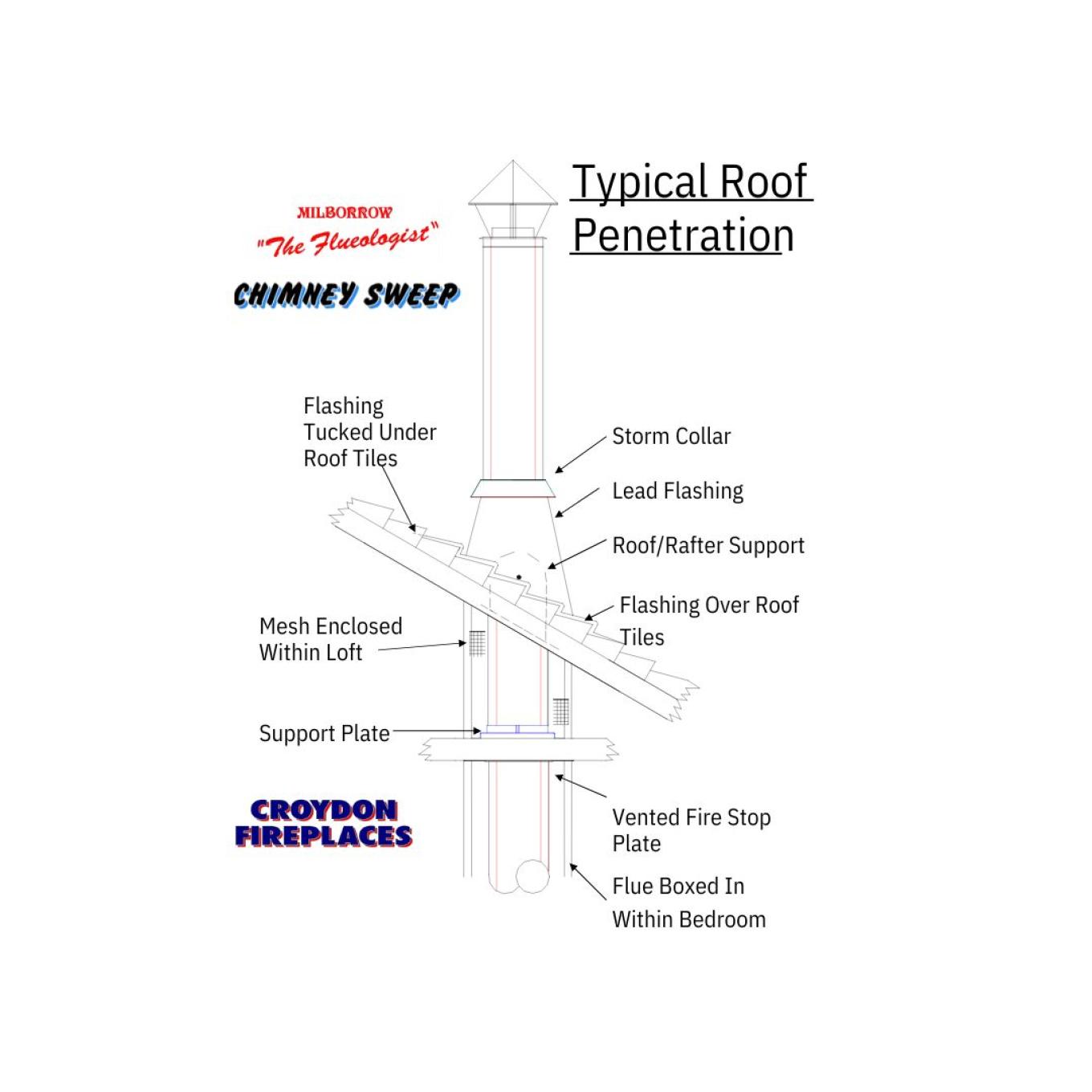The minimum chimney height recommended for minimum performance of wood burning and multi fuel appliances is >4.5 m from the top of the appliance to the top of the chimney. It is best practice to position the chimney, so that it goes straight up as near to the roof ridge as possible. The first diagram is the measurements directly correlating the roof's pitch to the height of the flue and the distance form the roof. The second is a image showing how the standard and common pre fabricated flue system is placed, fixed and supported through the roof and loft. In some cases, particularly when chimneys are towards the bottom of a sloping roof or at the eaves, it may be necessary to increase the chimney height above these minimum mandatory requirements. The reason for this is to clear pressure zones created by wind hitting the roof and nearby structures, like trees, which may interfere with the up draught required by the appliance or fire. The maximum freestanding stack height above the roof for a traditional masonry chimney is 5.4 times the narrowest horizontal part of the chimney. In the case of prefabricated system chimneys, the manufacturer’s installation instructions should be consulted; however in most cases it will be around 3m metres. This measurement is taken from the last point where the chimney stack passes the through or past the edge of the roof up to the chimney capping or termination. Tall chimneys may need additional bracing, always consult the installers in this case the offices at Milborrow Chimney Sweeps or Croydon Fireplaces for further advice.


